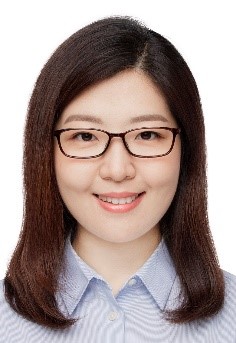Faculty
- Urban and Rural Planning
- Architecture
- Transportation Engineering
- Geotechnical and Underground Engineering
- Structural and Materials Engineering
- Disaster Prevention Reduction and Protection Engineering
- Road and Bridge Engineering
- Intelligent Construction & Engineering Management
- Municipal Engineering
- Water Resources & Water Engineering
- Healthy Circulation Technology of Urban Water System
- Green Built Environment and Energy Efficient Technology
-

Zhang Weirong
Title: Professor
E-mail: zhangwr@bjut.edu.cn
1.Member of the Expert Committee on Ventilation, Industry Technology Innovation Alliance for Heating, Ventilation and Air-Conditioning;
2.Adjunct professor of Tokyo Polytechnic University;
3.Member of American Society of Heating, Refrigerating and Air-Conditioning Engineers (ASHRAE);
4. Member of The Federation of European Heating, Ventilation and Air Conditioning associations (REHVA);
5.Member of International Building Performance Simulation Association (IBPSA);
6.Member of Architectural Institute of Japan (AIJ).
1.Prediction and control of building indoor environment;
2.Green building and building energy conservation related technologies;
3.Building simulation technology.
1.Achievement Award (research on Nearly zero energy building), by The Society of Heating, Air-Conditioning and Sanitary Engineers of Japan, 2016;
2.The Best Article Award (building energy simulation combined with CFD), by The Society of Heating, Air-Conditioning and Sanitary Engineers of Japan, 2014;
3.Chinese Government Award for Outstanding Self-financed Students Abroad, by China Scholarship Council (CSC), 2012.
1.Thushini Mendis, Zhaojian Huang, Shen Xu, Weirong Zhang. Economic potential analysis of photovoltaic integrated shading strategies on commercial building facades in urban blocks: A case study of Colombo, Sri Lanka. Energy, 194, 1-14, 2020.
2.Weirong Zhang, Hongye Li, Yifei Bai, Zhaofeng Wang. Optimization of cooling airflow in data center by CFD analysis in a new energy efficient cooling system using CO2 as the refrigerant [C]. ISHVAC2019 Vol.3,1175-1186.
3.Cao, S. J., Cen, D., Zhang, W., Feng, Z. Study on the impacts of human walking on indoor particles dispersion using momentum theory method. Building and Environment, 126, 195-206, 2017.
4.Xue, F., Li, X., Ooka, R., Kikumoto, H., Zhang, W. Turbulent Schmidt number for source term estimation using Bayesian inference. Building and Environment, 125, 414-422, 2017.
5.Fei Xue, Xiaofeng Li, Weirong Zhang. Bayesian identification of a single tracer source in an urban-like environment using a deterministic approach, Atmospheric Environment, Vol. 164, 128-138, 2017-09.
6.Zhang, H., Yoshino, H., Hasegawa, K., Liu, J., Zhang, W., & Xuan, H. (2017). Practical Moisture Buffering Effect of Three Hygroscopic Materials in Real-World Conditions. Energy and Buildings.
7.Cao, S. J., Kong, X. R., Deng, Y., Zhang, W., Yang, L., & Ye, Z. P. (2017). Investigation on thermal performance of steel heat exchanger for ground source heat pump systems using full-scale experiments and numerical simulations. Applied Thermal Engineering, 115, 91-98.
8.Shijie Cao, Weirong Zhang, An investigation of the PM2.5 and NO2 concentrations and their human health impacts in the metro subway system of Suzhou, China. Environmental Science: Processes & Impacts, 2017-03
9.Weirong Zhang, Kyosuke Hiyama, Shinsuke Kato. Building energy simulation considering spatial temperature distribution for nonuniform indoor environment. Building and Environment, Vol.63, pp89-96, 2013.5
10.Shinsuke Kato, Weirong Zhang. A Review: Coupled Simulation of CFD and Network Model for Heat and Contaminant Transport in a Building. Journal of Asian Architecture and Building Engineering, Vol. 13 (2014) No. 1 p. 231-238
11.You Zhou, Kyosuke Hiyama, Shinsuke Kato, Weirong Zhang. Study on Statistical Prediction and Design Method for Indoor Thermal Environment. Journal of Asian Architecture and Building Engineering, Vol.13, pp255-262, 2014.1
12.Taro Sasamoto, Shinsuke Kato and Weirong Zhang. Control of Indoor Thermal Environment Based on Concept of Contribution Ratio of Indoor Climate. An international journal: Building Simulation, Vol.3, pp263-278, 2010.12.
Weirong Zhang, professor and doctoral supervisor, got her bachelor’s degree from the School of Architecture, Tsinghua University in 2004. After that she continued her master course in Tsinghua University under the supervision of Professor Yi Jiang, who is a member of the Chinese Academy of engineering. During her master course, she organized an investigation of more than 30 public buildings to gather and analyze the energy consumption data, through which, she became very familiar to how to increase building energy efficiency. In 2008, she entered the University of Tokyo in Japan and started her PhD study under the supervision of Professor Shinsuke Kato. Her doctoral dissertation is on how to combine CFD with energy simulation.
After receiving her PhD degree in 2012, she remained in the University of Tokyo for another 2 years as a postdoctoral fellow. In this period, she had participated in several large projects. In 2014, she obtained a faculty position as an associate professor from Tokyo Polytechnic University. In 2018, she joined Beijing University of Technology.
She has now presided two National Natural Science Foundation of China projects and two National Key Research and Development Program for the 13th five-year plan period. Her areas of expertise include indoor environment control based on various ventilation systems, building simulation technology, building energy conservation related technology, passive building, low carbon town design, zero energy building and renewable energy utilization and other cross fields.




